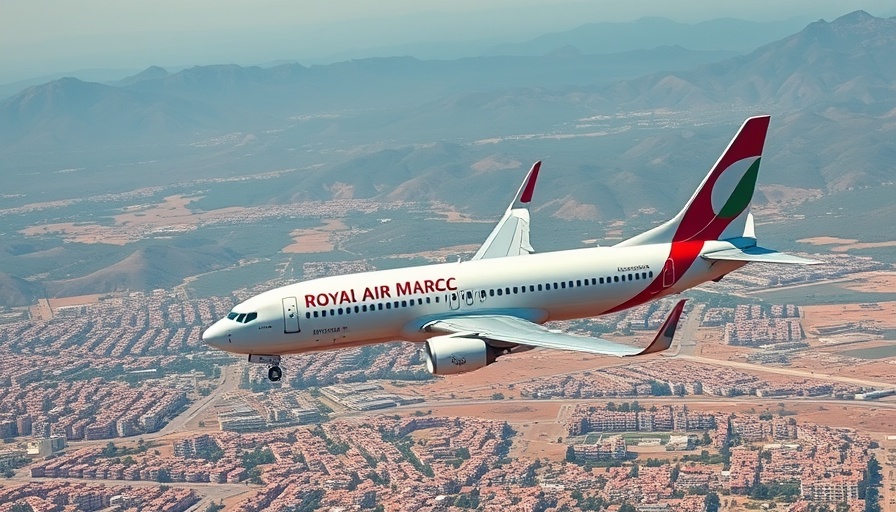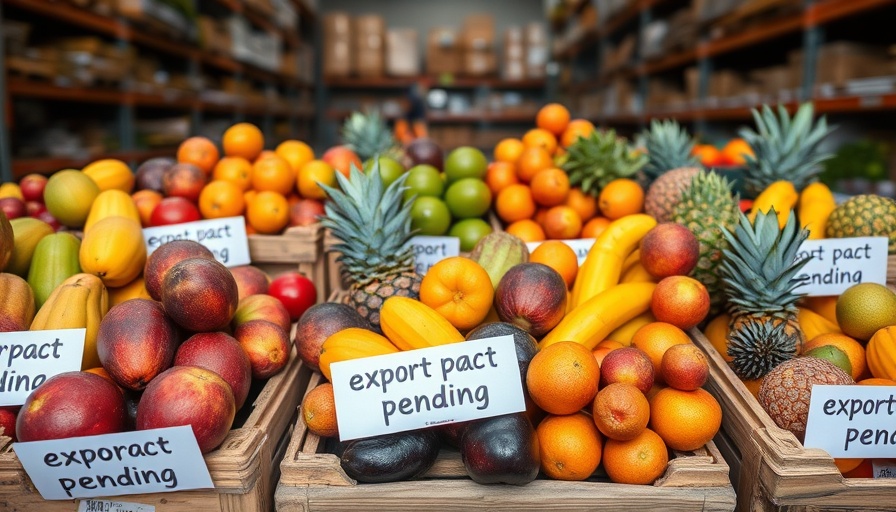
Boeing's Strategic Reinforcement in Morocco's Aerospace Sector
As Boeing’s influence continues to soar in Moroccan skies, the American aircraft manufacturer’s partnership with Royal Air Maroc signifies a pivotal moment for the North African nation’s airline industry. Following the recent challenges faced by Boeing, particularly its struggles with production and reputational damage, the company is reasserting its strategy to maintain a strong foothold in international markets. With a robust order of new Boeing aircraft set to integrate into Royal Air Maroc’s existing fleet, the partnership offers a glimpse into how Morocco is positioning itself as an aerospace hub in Africa.
The Importance of Aviation in Morocco's Economic Landscape
The growth of the aviation sector in Morocco isn’t just about connecting cities; it’s a significant component of the country’s broader economic development agenda. The Moroccan government has invested heavily in upgrading infrastructure and attracting foreign investments, particularly in aviation and tourism sectors. As the country embraces a strategy aimed at becoming a leader in regional and continental air travel, partnerships with industry giants like Boeing play a crucial role in enhancing its global standing.
Future Predictions: Morocco's Role in African Aviation
Looking ahead, Morocco's increasing diplomatic and trade ties with other African nations position it as a potential leader in the African aviation industry. With the African Continental Free Trade Area (AfCFTA) aimed at fostering economic integration and trade among African nations, enhanced air connectivity will be more critical than ever. This development could facilitate not only leisure travel but also vital business exchanges across the continent.
Challenges and Opportunities for Boeing in Africa
Boeing’s relationship with Royal Air Maroc reflects both opportunities and challenges. While the demand for commercial aircraft remains robust, Boeing must navigate issues such as rising competition from European manufacturers like Airbus. Moreover, as economic growth continues amid the backdrop of decolonization and regional trade agreements, the aviation industry must also embrace sustainability practices to tackle climate change and ensure long-term viability. This calls for innovative approaches to production and technology integration throughout the aviation supply chain.
Connecting Cultures: The Role of Aviation in Global Interaction
Aviation does not only serve as a mode of transport; it acts as a bridge connecting cultures, fostering understanding among diverse populations. In Morocco, a country rich in cultural heritage and diversity, increased air connectivity with other regions can encourage cultural exchanges that strengthen community ties across the African diaspora. This highlights the intertwining relationship between aviation, economic growth, and social integration.
Conclusion: Soaring Towards a Bright Future
Boeing’s heightened presence in Morocco’s skies is emblematic of both a strategic partnership and a thriving aviation sector aimed at bolstering economic growth and connectivity across Africa. As regional integration efforts intensify and countries focus on sustainable development, the aviation industry holds immense potential to drive transformation. For professionals and industry stakeholders, understanding these dynamics is crucial for navigating the future of air travel and ensuring that Morocco continues to rise in the global marketplace.
 Add Row
Add Row  Add
Add 




Write A Comment